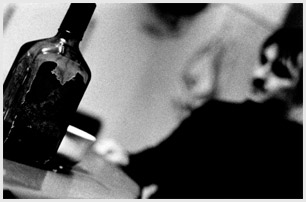When a loved one has a drink problem
 Drinking problem
Drinking problem
If someone you love has a drinking problem, you may be struggling with a number of painful emotions, including shame, fear, anger, and self-blame. The problem may be so overwhelming that it seems easier to ignore it and pretend that nothing is wrong. But you know that something is wrong, and in the long run, denying it will be more damaging to you, other family members, and the alcoholic.
What not to do
- Don't attempt to punish, threaten, bribe, or preach.
- Don't try to be a martyr. Avoid emotional appeals that may only increase feelings of guilt and the compulsion to drink or use other drugs.
- Don't allow yourself to cover up or make excuses for the alcohol or drug dependent person or shield them from the realistic consequences of their behavior.
- Don't take over their responsibilities, leaving them with no sense of importance or dignity.
- Don't hide or dump bottles, throw out drugs, or shelter them from situations where alcohol is present.
- Don't argue with the person when they are impaired or high.
- Don't try to drink along with the problem drinker or take drugs with the drug abuser.
- Above all, don't feel guilty or responsible for another's behavior.
Source: National Clearinghouse for Alcohol & Drug Information
Self care
Dealing with a loved one’s alcohol problem can be an emotional rollercoaster. It’s vital that you take care of yourself and get the support you need. Having people you can talk honestly and openly with about what you’re going through is important.
A good place to start is by joining a group such as Al-Anon, a free peer support group for families coping with alcohol dependency. Listening to others with the same challenges can be a tremendous source of comfort and support. You can also turn to trusted friends, a therapist, or other resources in your community.
-
You cannot force someone you love to stop abusing alcohol.
As much as you may want to, and as hard as it is to watch, you cannot make someone stop drinking. The choice is up to them. -
Don’t expect the person to stop drinking and stay sober without help.
Your loved one will need treatment, support, and new coping skills to overcome a serious drinking problem. -
Recovery is an ongoing process.
Recovery is a bumpy road, requiring time and patience. An alcohol dependent person will not magically become a different person once sober. And the problems that led to the alcohol abuse in the first place will have to be faced.
Admitting that there’s a serious problem can be painful for the whole family, not just the alcohol dependent person. But don’t be ashamed. You’re not alone. Alcohol dependency affects millions of families, from every social class, race, and culture. But there is help and support available for both you and your loved one.















